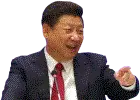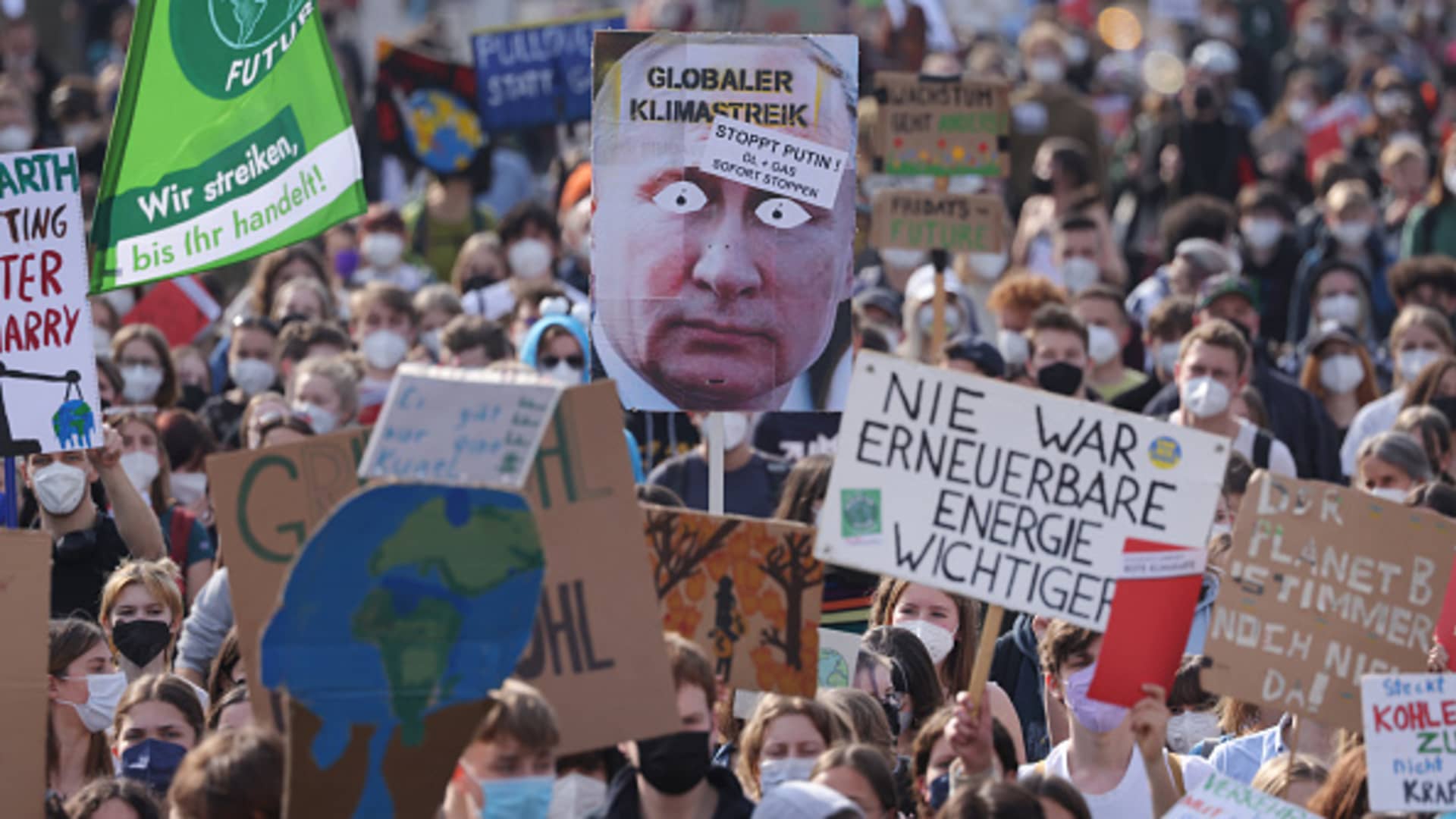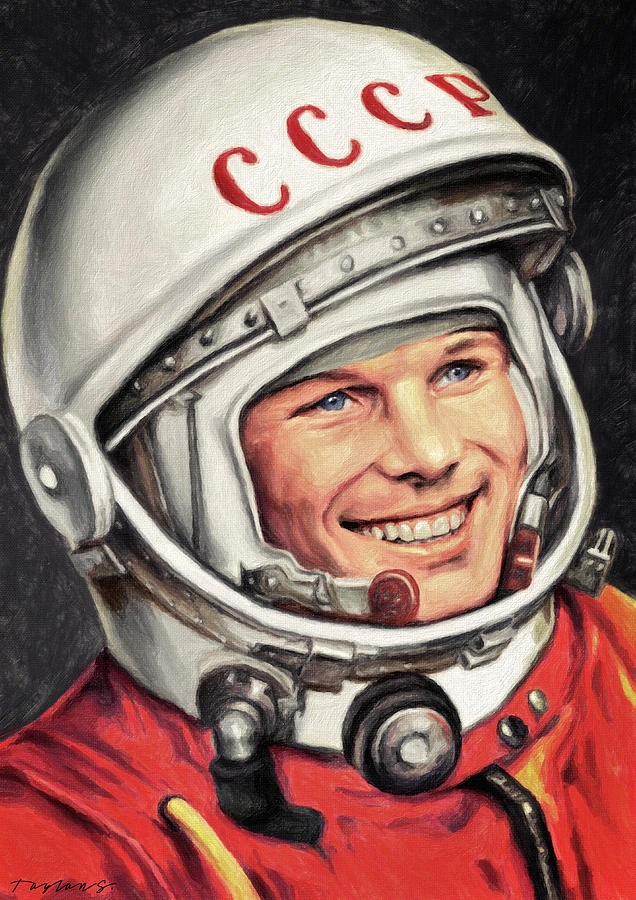Each day that goes by where China does literally nothing threatening the West loses face. Can’t have a boogeyman that does nothing while you go around the world genociding minorities on live stream.
deleted by creator
300 million a year!
(a) Countering Chinese influence fund. —There is authorized to be appropriated $300,000,000 for each of fiscal years 2021 through 2025 for the Countering Chinese Influence Fund to counter the malign influence of the Chinese Communist Party globally. Amounts appropriated pursuant to this authorization are authorized to remain available until expended and shall supplement, not supplant, amounts otherwise authorized to be appropriated to counter such influence.
I cropped the risk opinion heat maps so you don’t have to.
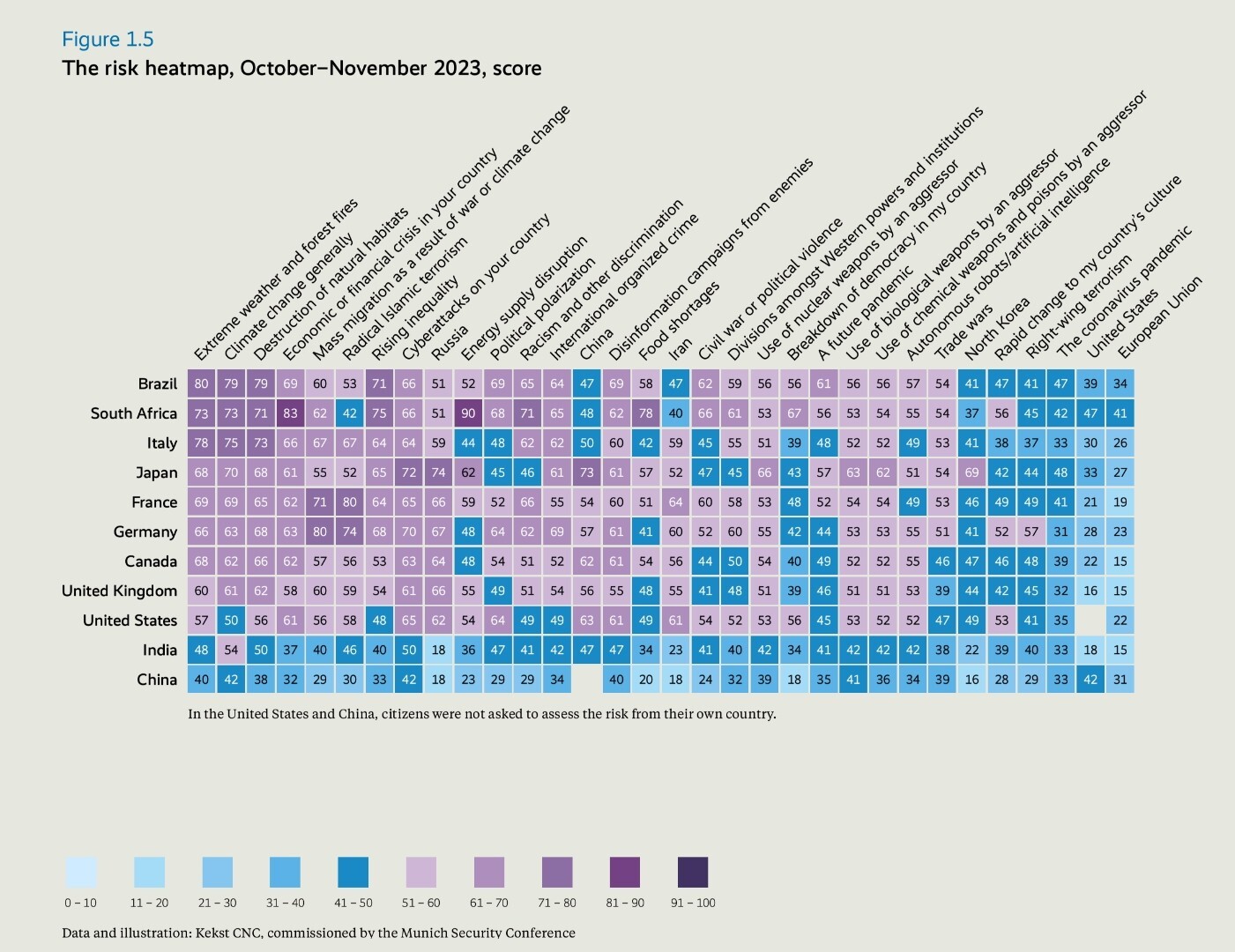
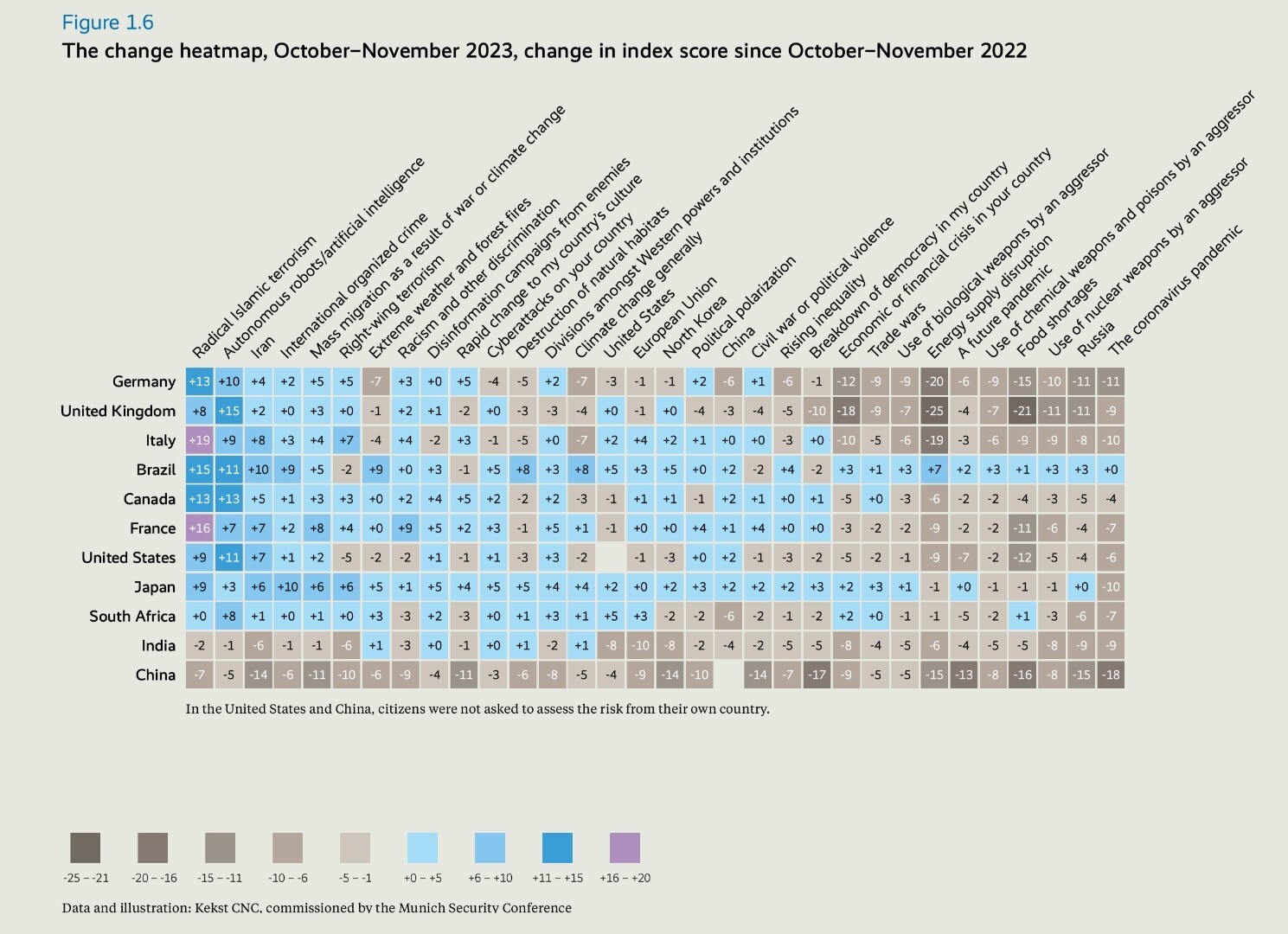
I think one interesting thing shown by this is that, across the board, China has significantly reduced worries about all measured topics.
It would have been nice if they had kept the axii in the same order between the charts
Russia fear rising in Brasil? Why?
Archive, please?
Thanks!
Sent from my iPhone, made in China.
Your point?
Communism when ifon
This is such a stupid and capitalist bootlicking line, not even an argument. I’m sure the feudal lords understood the actual danger when their serfs rose up using their pitchforks.
this level of thinking is the reason people can be replaced by LLM or even just basic script bots.
deleted by creator
Its another consequence of the current focus on aesthetics, in this case rhetoric.
You could say the most ignorant statement ever, but if you do it with fancy words you are going to be taken seriously. The prime example of this is JPeterson.
deleted by creator
What are Productive Forces?
The concept of the productive forces are at the heart of Marx’s ideas of historical materialism. Historical progress — that is to say, the transition from one economic [system] to the next — is driven by the development of the productive forces.
“In the social production of their existence, men inevitably enter into definite relations, which are independent of their will, namely relations of production appropriate to a given stage in the development of their material forces of production.”
—Karl Marx, “A Contribution to the Critique of Political Economy”
Productive forces are basically like things you need to produce things. The more you have the more you can produce. A person with a tractor is going to be able to grow more food on his farm than a person just with a wagon and some horses.
Every given society has some level of development of the productive forces, some have more developed productive forces some have less. The amount they have determines how they organize themselves around the productive forces in order to produce things.
How humans organize themselves around the productive forces, or, in other words, the combination of productive forces and the relations of production, form the mode of production of that society. Different societies have different modes of production, slave-based societies produced things differently than feudal-based societies, which also produced things differently than modern capitalist societies.
“The totality of these relations of production constitutes the economic structure of society, the real foundation, on which arises a legal and political superstructure and to which correspond definite forms of social consciousness.”
— Karl Marx, “A Contribution to the Critique of Political Economy”
The mode of production is the base of society. Humans enter into a certain mode of production unintentionally, but then they post-hoc add on a superstructure to that society. The superstructure is the laws, politics, and ideology of that society. All societies have a ruling ideology that justify the mode of production, such as feudal societies had the “divine right of kings” which justified the feudal system, and when capitalism arose, liberalism also arose which justified capitalist society. But they also have politics and law on top of it, the relations of production are written into property law. Property law changed from feudal to capitalist societies, people had rights they didn’t have before. Between slave-based and feudal societies, there was also a change in property law.
“The mode of production of material life conditions the general process of social, political and intellectual life. It is not the consciousness of men that determines their existence, but their social existence that determines their consciousness.”
— Karl Marx, “A Contribution to the Critique of Political Economy”
Think of the ideology of liberalism going back to John Locke that was the banner of the French and American revolutions. Some may say that the revolutions happened because some smart guy, in this case, John Locke, came up with liberalism and used it to overthrow the divine right of kings and establish modern day capitalist society, and that’s why we have capitalism today. However, Marx disagrees. He says that capitalism had already largely arisen within feudal societies. As the productive forces changed, this forced society to change its relations of production unintentionally. And thus, feudal societies, over time, changed their mode of production to a capitalist mode of production. John Locke didn’t invent liberalism independently of the natural world, but liberalism came as a direct result of the natural world. The new mode of production of feudal society, the property law of feudal society, the ruling ideology of feudal society, these all contradicted with the new mode of production that was arising. And this gave rise to a new ideology forming, liberalism. The material conditions cause developments in ideology and not the other way around.
“At a certain stage of development, the material productive forces of society come into conflict with the existing relations of production or — this merely expresses the same thing in legal terms — with the property relations within the framework of which they have operated hitherto.”
— Karl Marx, “A Contribution to the Critique of Political Economy”
Over time, as the productive forces develop, the relations of production also begin to change in response. However, they are restricted by property law. The superstructure of that feudal society was designed specifically around feudal production, but now capitalist production was arising that was far more efficient than feudal production, but the relations of production necessary for it constantly contradicted with and bumped into feudal property law and the feudal ruling ideology.
“From forms of development of the productive forces these relations turn into their fetters. Then begins an era of social revolution. The changes in the economic foundation lead sooner or later to the transformation of the whole immense superstructure.”
— Karl Marx, “A Contribution to the Critique of Political Economy”
Eventually, as the new mode of production develops more and more, the contradiction between the base and the superstructure grow so great that there is a rupture. In the case of the American and French revolutions, there were actual revolutions, which overthrew the monarchy and executed them, and then rewrote property law to fit the new mode of production, as well as established a new ruling ideology: liberalism. Marx also sums up this process in reference to feudalism in the Manifesto.
“We see then: the means of production and of exchange, on whose foundation the bourgeoisie built itself up, were generated in feudal society. At a certain stage in the development of these means of production and of exchange, the conditions under which feudal society produced and exchanged, the feudal organisation of agriculture and manufacturing industry, in one word, the feudal relations of property became no longer compatible with the already developed productive forces; they became so many fetters. They had to be burst asunder; they were burst asunder. Into their place stepped free competition, accompanied by a social and political constitution adapted in it, and the economic and political sway of the bourgeois class.”
— Karl Marx, “A Contribution to the Critique of Political Economy”
This doesn’t just apply to feudalism → capitalism, but for every transition from one economic mode of production to the next. Marx calls this historical progress. The productive forces ultimately, in every society, determine the base of that society, and then formed on top of the base, post-hoc, is the superstructure. Therefore the entire society is centered around its current productive forces, and the development of these productive forces causes radical changes in the development of society over time.
primitive → ancient → feudalism/AMP → capitalism → communism
The transition from hunter-gatherer tribes to ancient slave-based economies, the transition from slave-based economies to feudal economies (or sometimes the “Asiatic mode of production” or AMP), the transition from feudal economies to capitalist economies, and eventually the transition from capitalist economies to communism, are all driven by the development of the productive forces.
“…social relations between the producers, and the conditions under which they exchange their activities and share in the total act of production, will naturally vary according to the character of the means of production. With the discover of a new instrument of warfare, the firearm, the whole internal organization of the army was necessarily altered, the relations within which individuals compose an army and can work as an army were transformed, and the relation of different armies to another was likewise changed.
We thus see that the social relations within which individuals produce, the social relations of production, are altered, transformed, with the change and development of the material means of production, of the forces of production. The relations of production in their totality constitute what is called the social relations, society, and, moreover, a society at a definite stage of historical development, a society with peculiar, distinctive characteristics. Ancient society, feudal society, bourgeois (or capitalist) society, are such totalities of relations of production, each of which denotes a particular stage of development in the history of mankind.”
— Karl Marx, “Wage-Labour and Capital”
I will leave you with a final quote…
“It is only possible to achieve real liberation in the real world and by employing real means, that slavery cannot be abolished without the steam-engine and the mule and spinning-jenny, serfdom cannot be abolished without improved agriculture, and that, in general, people cannot be liberated as long as they are unable to obtain food and drink, housing and clothing in adequate quality and quantity. ‘Liberation’ is an historical and not a mental act, and it is brought about by historical conditions, the development of industry, commerce, agriculture, the conditions of intercourse.”
— Karl Marx, “The German Ideology”
by zhenli
